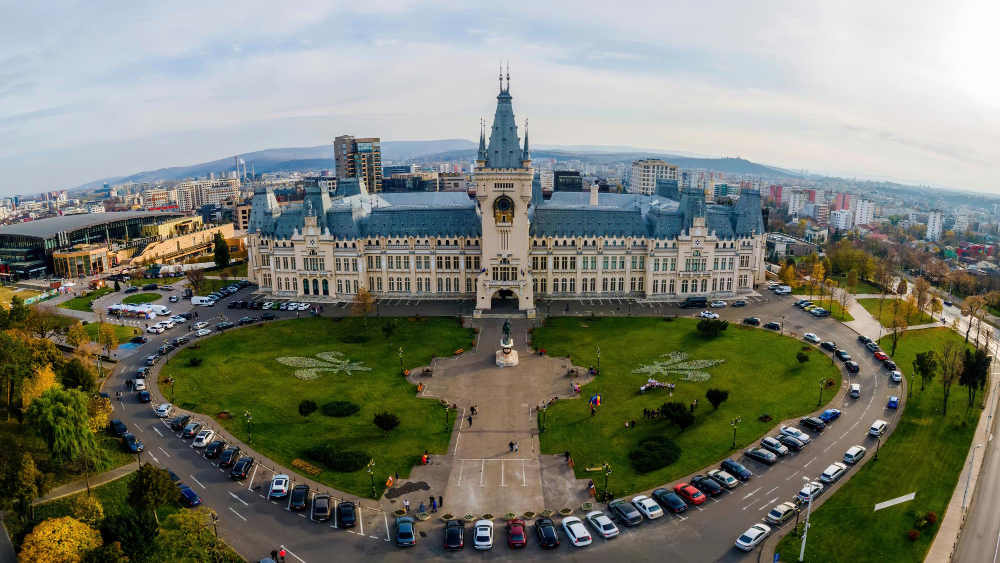
Romania is emerging as a highly attractive destination for medical tourism in Europe, drawing patients from Western Europe, the UK, the Middle East, and even North America. Known for its blend of affordability, skilled healthcare professionals, and scenic charm, Romania offers a compelling alternative to more expensive Western healthcare systems. Key medical hubs include Bucharest, Cluj-Napoca, Timișoara, and Iași, where modern hospitals and private clinics provide world-class care at a fraction of the cost.
Romania’s medical landscape is strengthened by its historical reputation for excellence in medical education and its integration of traditional European healing practices. Coupled with significant government investment in healthcare modernization and EU-aligned regulatory frameworks, the country is rapidly becoming a serious contender in the global medical tourism industry.
Beyond medical infrastructure, Romania’s warm hospitality, historic architecture, and stunning landscapes—from the Carpathian Mountains to the Black Sea coast—offer patients a soothing environment for recovery and relaxation.
Romania is particularly noted for its advanced capabilities in dentistry, cosmetic and reconstructive surgery, and ophthalmology. Romanian dental clinics are especially popular, offering high-end services like implants, veneers, and full mouth restorations using cutting-edge technology at prices often 50–70% lower than in the UK or Germany.
Other sought-after treatments include fertility treatments (IVF), orthopedic surgeries like joint replacements, cardiology, and minimally invasive laparoscopic surgeries. Many facilities utilize modern diagnostic tools, robotic systems, and advanced imaging technology to ensure precision and safety.
Romanian doctors are often trained or certified in Western Europe or North America, and many speak English fluently. Hospitals and clinics increasingly offer all-inclusive packages that cover the procedure, accommodation, local transport, and even sightseeing, making Romania not only affordable but also highly convenient for international patients.
Romania is well-connected to major European cities with regular low-cost and international flights to airports in Bucharest, Cluj-Napoca, Timișoara, and Iași. Most European nationals enjoy visa-free access, and Romania’s simplified entry procedures make it easy for international patients to travel.
Upon arrival, patients often benefit from dedicated medical tourism coordinators who assist with airport pickup, translation, appointment scheduling, and personal support throughout the treatment process. English is commonly spoken in private healthcare settings, especially among medical professionals and international patient liaisons.
Romanian healthcare providers are sensitive to cultural and religious needs. Patients can request gender-specific care, special dietary accommodations, and even private recovery suites with family-friendly options. Combined with Romania’s tranquil spa towns, natural hot springs, and wellness resorts, the country offers an ideal environment for healing both body and mind.
Romania's healthcare system is governed by the Ministry of Health and aligned with European Union standards, ensuring strict oversight on hygiene, clinical safety, and professional licensing. Many private clinics pursue additional accreditations and participate in international quality certification programs.
Digital patient records, infection control protocols, and transparent consent processes are standard across reputable institutions. In the rare event of malpractice, Romania’s legal system allows for judicial recourse and patient protection.
Follow-up care is a growing priority, with many clinics offering post-procedure monitoring, telemedicine check-ups, and rehabilitation support. For treatments requiring prolonged recovery, some providers collaborate with spa hotels and rehabilitation centers to offer a seamless and stress-free recovery experience.
With its combination of high medical standards, competitive pricing, and authentic European charm, Romania is fast becoming a medical tourism destination of choice. Whether you’re seeking advanced dental treatments, aesthetic enhancement, or orthopedic interventions, Romania offers a healthcare experience that is affordable, high-quality, and centered around patient comfort.
From state-of-the-art clinics to relaxing post-treatment getaways, Romania delivers a comprehensive and human-centered approach to medical travel.
1. Why choose Romania for medical tourism?
Romania offers high-quality care at low prices, with EU standards and skilled doctors.
2. What are the most popular treatments in Romania?
Dental work, cosmetic surgery, IVF, orthopedics, and eye treatments are popular.
3. Are doctors in Romania well-qualified?
Yes. Many doctors are trained in Western Europe or the U.S. and speak English.
4. Is it safe to get treated in Romania?
Yes. Clinics follow strict EU safety and hygiene regulations.
5. How much can I save compared to Western Europe or the U.S.?
Patients can save 50–70% on most treatments.
6. Is the language a barrier for foreign patients?
No. Most private clinics have English-speaking staff.
7. What cities are best for medical treatments?
Bucharest, Cluj-Napoca, Timișoara, and Iași are top medical hubs.
8. Are full medical packages available?
Yes. Many providers offer packages with treatment, hotel, and transport.
9. Do I need a visa to travel to Romania?
Many nationalities don’t need a visa or can get an easy e-visa.
10. Can hospitals accommodate special cultural or religious needs?
Yes. You can request halal food, gender-specific care, or prayer spaces.
11. Is follow-up care provided after treatment?
Yes. Clinics offer post-treatment monitoring and online consultations.
12. What is the local currency in Romania?
The local currency is the Romanian Leu (RON).
13. What time zone is Romania in?
Romania is in Eastern European Time (UTC+2 / UTC+3 in summer).
14. Is Romania good for recovery and relaxation?
Yes. It has spas, mountains, and beautiful countryside perfect for healing.
15. Are international accreditations common?
Many top clinics pursue global certifications and meet EU healthcare standards.